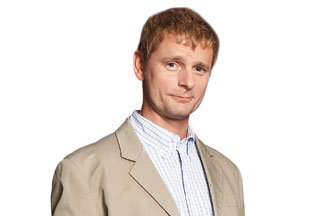
They're expensive to run, spending much of their time idle, and most people would be better off getting cabs, or using a car club. Justified by the occasions when alternative modes of transport would be inconvenient, a car works out as an expensive indulgence.
Yet, our relationship with cars is more complex than that. If reliability and economy were vital, you'd never see an Alfa Romeo on the street.
Levi's knows this; after years of talking about the practical benefits of its jeans, putting Nick Kamen in them (or more to the point, getting him out of them) did far more for sales. It turned out that what people wanted to know from jeans advertising was simple: were they going to get laid in them?
However cars are isolation booths - execuboxes for the nose-pickerati to crawl along the A40 in the rush hour. Could they really be the basis for a new wave in social networking?
The Ace Cafe London on the North Circular Road has been hosting meet-ups for car enthusiasts since 1998; not just exotics and hotrods, but Hyundai and Mazda nights, too. For them, cars are a social lubricant, but events like this are limited to an obsessed minority.
However, Fiat in the UK and Ford in the US have just launched something that could make driving your car a social experience, and at the same time address a fundamental marketing challenge in the auto business.
Both manufacturers have worked with Microsoft, to create Ford's Sync-myride and Fiat's Blue & me systems.
Blue & me allows you to download data on your driving via a USB socket in the car. When you upload this onto your computer, it displays an analysis of your driving techniques and gives you an eco-score. It then offers tips on how to make your journeys more fuel efficient and tracks your performance over time so you can see how it improves.
The Fiat system also links you into a community, Ecoville, that shows how much CO2 its members around the world have collectively saved. It's only a beta site, but it has the potential to become the Nike+ of the motoring world.
As a tool of behavioural economics, it could create social pressure between people to drive more economically. Research by the University of California showed that homeowners who got feedback that their energy use was higher than their neighbours' responded by reducing consumption.
So the behaviour of others has a strong conformative influencing effect on us - show us how our mileage compares with other drivers, and we will work hard to match their performance.
More interestingly, from a marketing perspective, building this technology into cars has the potential to break down an old barrier in the automotive sector. Most manufacturers operate through a network of franchised dealerships, with the customer relationship being 'owned' by the dealer.
Dealer marketing is highly variable in quality, but the relationship is fiercely guarded by dealers, who, particularly since the arrival of the web, fear disinter-mediation by manufacturers.
Having created a benefit in the ongoing interaction with its website, Fiat has created a means to communicate directly with its consumers - and the ability to base that communication on the real behaviour-based needs of that group.
Fiat now offers Blue & me as a premium option, implying it considers the benefit to be the consumer's. However, developments like this will become commonplace in future - driven by the value they bring to relationship marketing, rather than the gadget appeal to consumers.
Andrew Walmsley is co-founder of i-level
30 seconds on... The Ace Cafe London
- The Ace Cafe first opened as a transport cafe in 1938, mainly to serve lorry drivers using the newly opened North Circular Road, which runs from Gunnersbury in West London to North Woolwich in the East End.
- The cafe opened 24 hours a day and it became a favoured meeting place for motor-cycling enthusiasts.
- It is located near to Willesden railways marshalling yard, which was the target of German bombing during World War II. The cafe was destroyed in an air raid but rebuilt in 1949.
- The Ace Cafe had a heyday in the 50s as its motorcycling associations made it a key location for London's burgeoning rock'n'roll scene.
- It 1964 it was used as the location for the film Leather Boys, a drama about a gay member of a biker gang.
- It shut as a cafe in 1969 and was used as bookmaker and then a tyre depot.
- During the 90s, the site star-ted to be used for nostalgic 'reunions' of motorcyclists. The cafe itself was refurbished and reopened in 2001.


.jpg)


.jpg)